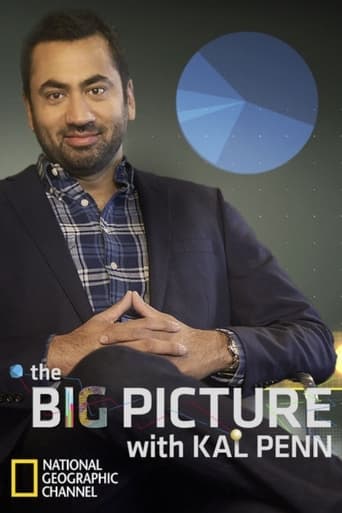
Fantasy Sports
Data and number crunching have taken over the world of sports. The highest proportion of NFL players comes from the small towns of the Louisiana bayou, thanks to a unique combination of roads, talent and history. We travel to Argentina to meet the highly organized soccer hooligans of Buenos Aires, who look more like a mafia than a fan club. Picking a name and mascot for your team is a serious business. Is it better to go for a top name (“‘Eagles” is most popular in the U.S.) or a rare one?
Country: US
Language: En
Runtime: 23
Season 1:

Explore how the small, rural town of St. Albans, Vermont, is making big money for drug dealers; how the local economy in Canon City, Colorado, benefits from incarceration; and how the gangs in Washington, D.C., compete to control territory, a fight that is happening more and more through social media.

We’re on a quest to dig up the goods, from the most remote ends of the earth to our own backyards. And we’re charting a course to where X really does mark the spot of buried treasure. We’ll travel to northeastern Nevada, where more gold has been found than in the entire California Gold Rush. And in Defiance, Ohio, we’ll meet a family who discovered a bin of old baseball cards and found out that these rare collectibles are worth millions. Finally, we journey to Lodz, Poland, with treasure hunters seeking gold and jewels thought to be lost forever from World War II.

All sex is not created equal, and some places are blessed with more of it than others. We travel to Hurley, Wisconsin, a town with the unlikely distinction of being the Strip Club Capital of America. Know where to find the fastest-growing group of sexually active people? We head to Delray Beach, Florida, where senior citizens are turning retirement communities into sexual meccas. And as more countries experiment with legalized prostitution, we journey to Switzerland, to a drive-in brothel in Zurich.

When an idea goes viral, it spreads like a disease. When a sickness goes viral, all of us are at risk. Whether it starts with animals, humans or bombs, how can we improve our chances of surviving the next global pandemic? At the Centers for Disease Control headquarters in Atlanta, a researcher studies mosquitoes (the world’s most dangerous animals) by letting them suck blood from his arms. Starting in the Hong Kong hotel where SARS turned into an epidemic, we trace how the disease spread worldwide. In a top secret U.S. government lab in Los Alamos, New Mexico, researchers track biological weapons around the world and map their potential impact.

Data and number crunching have taken over the world of sports. The highest proportion of NFL players comes from the small towns of the Louisiana bayou, thanks to a unique combination of roads, talent and history. We travel to Argentina to meet the highly organized soccer hooligans of Buenos Aires, who look more like a mafia than a fan club. Picking a name and mascot for your team is a serious business. Is it better to go for a top name (“‘Eagles” is most popular in the U.S.) or a rare one?

As we build an overlapping map of natural disaster threats around the world, we make an unsettling discovery: Mother Nature has handed us our eviction notice, and almost no place is truly safe. Drought is a major threat around the world, and in San Angelo, Texas, pilots are fighting back by seeding the clouds to create weather the local ranchers desperately need. We travel to Iceland to delve into a town on the edge of a volcano where residents dodge molten lava and constantly rebuild as eruptions eat their property. The U.S. has more damaging weather and disaster threats than any other nation, and the epicenter of it all is New Madrid, Missouri, home to the biggest earthquake in American history, along with a laundry list of other potentially deadly natural disasters.

We explore the role LSD played in making Silicon Valley the hub of today's PC and Internet revolutions and journey to a town in Romania that is getting rich from running Internet scams that milk unsuspecting victims out of millions.

We're building a plate of the world's most popular dishes, including going to the number one pizza town in the U.S. to meet a guy who has lived on nothing but pizza for 25 years.

They say that one man's trash is another man's treasure. But in the right hands, all trash has the potential to be treasure.

At the Mars Desert Research Station in Utah, a group of ambitious scientists is conducting research into how humans could survive on Mars.

Think of the human body as a city unto itself, with buildings, utilities, traffic patterns and rules and regulations that make the whole place hum. Our bodies aren't done evolving — they have urban development too, in the form of new technology implanted to enhance our abilities.

You’d think after thousands of years of exploring and mapping the earth that we’d know where everything is by now. Well, we don’t. Not even close. We’re going on a global quest to reveal the mislabeled, the mysterious and the just plain missing places off the map. We travel to Washington, D.C., to discover that the U.S. government has its own maps, and they reveal a very different country where top secret installations are connected by unmarked roads and underground tunnels.


